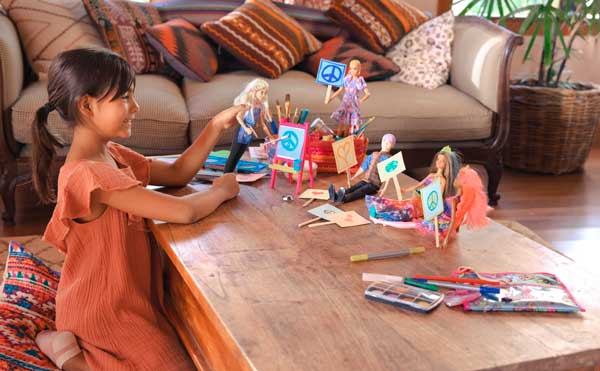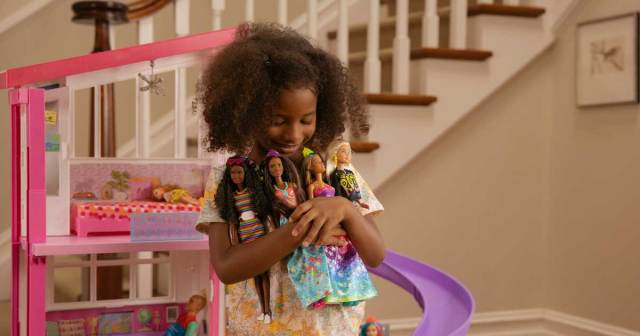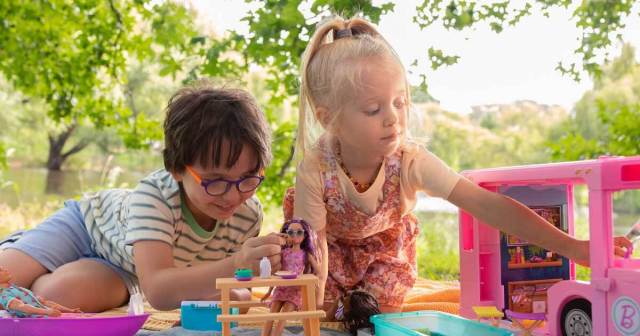Barbie has been hard at work as usual. In a new press release, Mattel announced that she has partnered with a team of neuroscientists at Cardiff University on a multi-year study on the developmental impacts of doll play and that the latest findings are now ready. The study has some interesting information on just what exactly kids say while playing and its relation to playing with dolls and understanding emotions.
Published in Developmental Science and titled Doll Play Prompts Social Thinking and Social Talking: Representations of Internal State Language in the Brain, researchers used state-of-the-art functional, near-infrared spectroscopy equipment to examine brain activity while kids played with dolls and on tablets. They found that children used internal state language (ISL)––talking about others’ thoughts and emotions––more when playing with dolls than when playing on a tablet. So why is that important?

Researcher Dr. Sarah Gerson believes that “When children create imaginary worlds and role play with dolls, they communicate at first out loud and then internalize the message about others’ thoughts, emotions and feelings. This can have positive long-lasting effects on children, such as driving higher rates of social and emotional processing and building social skills like empathy that can become internalized to build and form lifelong habits.”
Using ISL allows kids to hone their social skills with real people, resulting in strong emotional development as they mature. Since children were so strongly impacted during the pandemic when it comes to interacting with peers, the researchers at Cardiff University assert that doll play provide a necessary outlet for kids to practice skills, scenes and interactions that can be used in real-life.

“Internal state language can indicate that a child is thinking about other people’s thoughts and emotions while playing with dolls. These skills are really important for interacting with other people, learning from other people, and navigating a variety of social situations. It becomes important for making and sustaining friendships, and how they learn from their teachers, and parents,” says Gerson.
Looks like it’s time to grab the box of Barbies and get all the kiddos playing. The research suggested that the study findings are gender neutral and that doll play is critical for everyone.
––Karly Wood
All photos: Courtesy of Mattel
RELATED STORIES
Study Shows COVID-19 Stress Affects One Sibling More Than Others in Multi-Child Families
New Study Shows 79% of Moms Prefer Remote Work
Pregnant Women Less Likely to Impact Baby’s Weight Than Previously Thought











